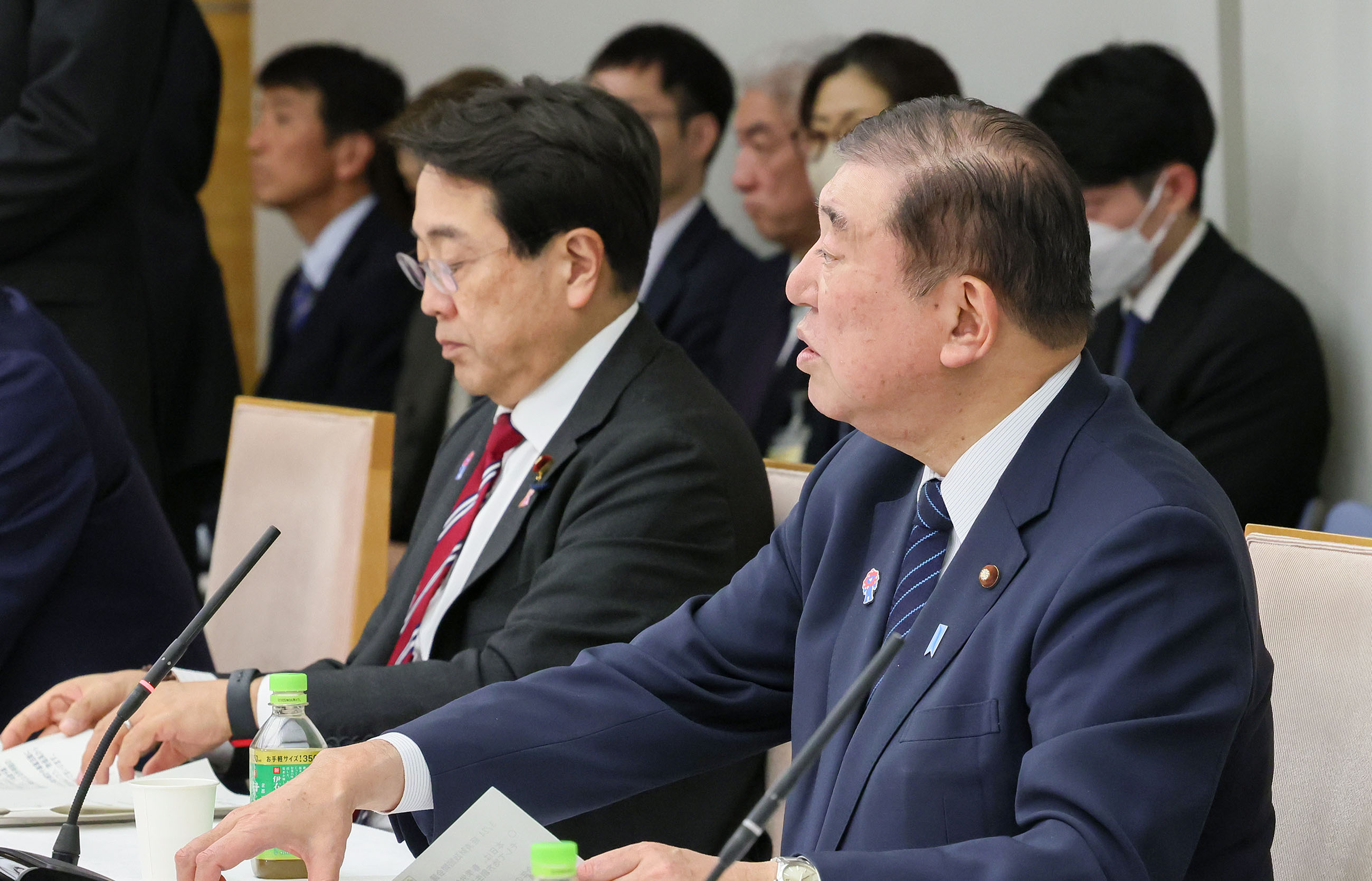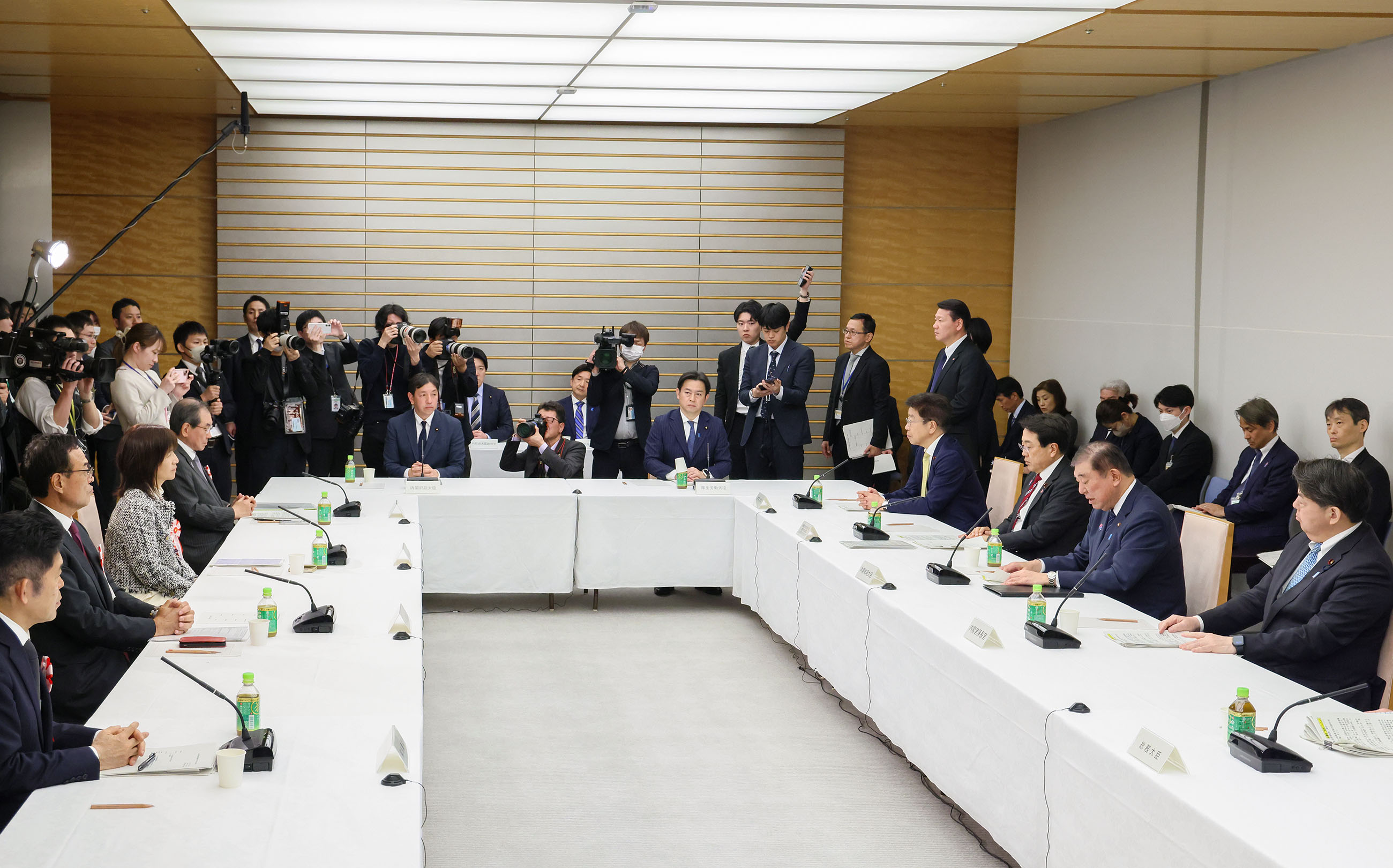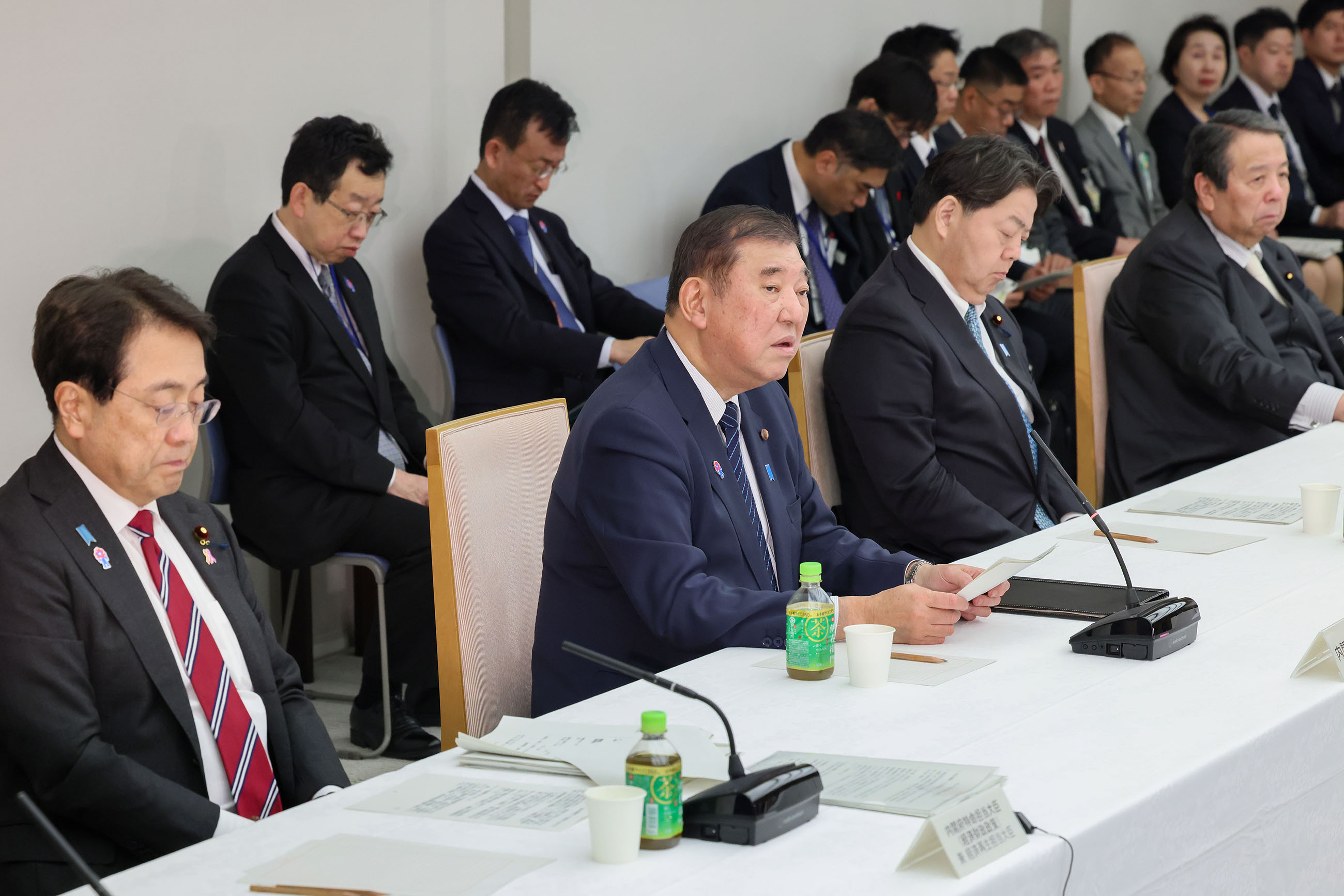Meeting of the Council on Economic and Fiscal Policy
March 24, 2025
[Provisional translation]
On March 24, 2025, Prime Minister Ishiba held the third meeting of the Council on Economic and Fiscal Policy in 2025 at the Prime Minister’s Office.
At the meeting, the participants engaged in discussions on macroeconomic management (spring wage negotiations and other matters) and regional revitalization.
Following the discussion, the Prime Minister said:
“Today we held discussions on spring wage negotiations, progress in measures against rising prices, and regional revitalization.
The second compilation of employers’ responses made by the Japanese Trade Union Confederation (RENGO) for this year’s spring wage negotiations (dated March 21) revealed an overall wage increase of 5.40% and a wage increase of 4.92% for small and medium-sized trade unions, both of which exceeded the levels recorded in last year’s second compilation. I would like to once again express my appreciation for the cooperation and dedication on the part of labor and management.
We will mobilize every possible policy measure to support wage increases at micro, small, and medium-sized enterprises going forward, ensuring that this momentum will spread throughout the country.
In regard to minimum wages, I ask you to discuss the matter in the next special session regarding wage increases as well.
When it comes to measures to combat rising prices, we have decided to provide all prefectures and 1,250 municipalities with grants to local regions for prioritized assistance. Our efforts to address high prices have been steadily under way, as we received bids for 150,000 tons of the Government’s rice stockpile and commenced its delivery to rice consignees. The passage of the FY2025 budget and tax laws would help alleviate the income tax burden by expanding the basic personal exemption.
We will continue to closely monitor price trends and the impact of rising prices on households and business activities and thoroughly protect people’s lives and business activities from high prices.
Regarding regional revitalization, we deliberated on the formulation of a basic vision.
In order to rectify the overconcentration in Tokyo and build attractive local economies that are chosen by young people and women, it is important to create high-quality industries and workplaces in these areas, thereby developing vibrant economies where everyone can continue to live with peace of mind and enjoy a high level of happiness and satisfaction.
We received the following opinions from the private-sector members: labor shortages caused by a decreasing population should be leveraged to raise wages and improve working conditions in local areas, while implementing measures to revitalize these areas according to their respective characteristics, among others, and rectify the wage disparity between these areas and Tokyo mainly by raising minimum wages; we should conduct thorough visualization that would enable comparison of strategies, key performance indicators (KPIs), and other indices of each region, with a view of producing high policy impacts; and we should establish KPIs that will allow us to grasp policy impacts linked to the end results of policies and projects and to conduct rigorous examination of their effects.
I request the Minister in charge of the Creation of New Regional Economies and Living Environments to take today’s discussions into account, advance considerations toward the formulation of a basic vision aimed at driving the revitalization of local economies as a catalyst for that of the Japanese economy as a whole, with an eye on local areas that are chosen by young people and women, and report the results at the Meeting of the Council on Economic and Fiscal Policy. That is all from me.”


